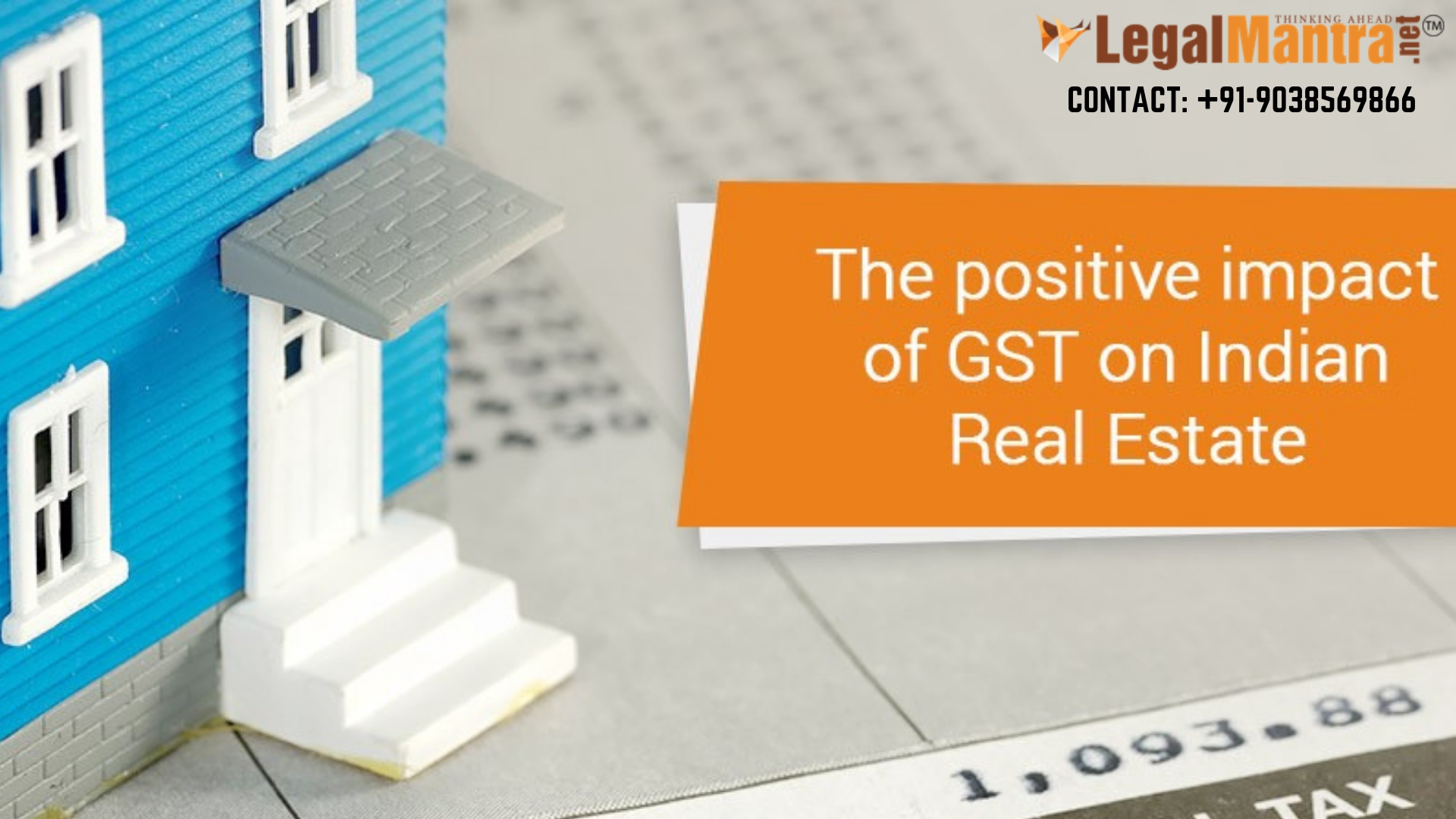View News
GST Positive Impact towards Real Estate Sector

Real estate industry is one of the most important pillars of the Indian economy. Real estate industry contributes between 6-8% to India’s Gross Domestic Product (GDP) and it stands second after IT industry in terms of employment generation. With multiple taxes applicable previously like service tax and VAT, with GST coming into the picture, indirect taxation in this sector is wholly revamped.
- Impact on Buyers
- Under the earlier tax regime, buyers had to pay VAT, service tax, registration charges & stamp duty on purchase of properties under construction. Also since VAT, registration charges & stamp duty were state levies, prices of properties varied from state to state. Moreover, developers had to pay various duties like sales tax (CST), custom duty, OCTROI etc. for which credit was not available.
- Under GST, a single tax rate of 12% is applicable on properties under construction while GST is not applicable on completed or ready to sale properties which was the case in previous law. Hence buyers will benefit from reduction of prices under GST. In the short-term, buyers may stick to “wait and watch” approach to gain more understanding on the impact of GST on property prices and defer buying decision.
- Impact on Developers / Builders / Contractors
- Under the previous tax regime, developers had to bear excise duty, VAT, customs duty, entry taxes etc. on raw materials/inputs and service tax on various input services like approval charges, architect professional fees, labor charges, legal charges etc.
- Under GST, developers’ construction costs are significantly reduced as multiple taxes are subsumed and due to the availability of input tax credit. Also, reduction in cost of logistics will be an added benefit. Hence developers may see improvement in margins.
- On the downside, developers have to do multiple calculations to arrive at ITC in order to pass it on to the buyers. Hence, in most cases, they can pass on the ITC only during the final stages.
- And, in the erstwhile laws, a large portion of expenditure remained unrecorded in the books. Under GST, availability of credit on inputs and cloud storage of invoicing has reduced under recording of expenditure.
- Impact on Other Stakeholders
The impact on the allied services like labor, material suppliers, service suppliers etc. depends on the increase or decrease in the tax levied on these goods and services. This will have a consequential impact on real estate industry as a whole.
- Reverse Charge Mechanism (RCM) & Its Impact
- One of the significant additions to RCM under the GST law is, if goods are procured/service are received from a person who is not registered under GST, a registered person under the GST has to pay GST on all such supplies.
- In cases where services are received from goods transporters, legal services received from an individual or firm, services received from the government or local authorities, like municipalities, etc. (subject to exceptions), developer has to pay the GST on the same.
- Also, under GST, the developer cannot adjust the tax payable under RCM against the input credit available from the GST paid on the inputs. Instead, it has to be paid by cash/bank payment.
- Treatment of Input Tax Credit, Eligibility and Ineligibility
Under GST, credit of taxes charged on all input and /or input services which are used or intended to be used in the course of furtherance of business would be available subject to exceptions.
- Conditions for Claiming ITC
A registered person will be entitled to claim input tax credit only upon fulfillment of the following conditions:
- He has the possession of tax invoice (purchase invoice) / debit note
- He has received the goods and /or services or both
- The tax charged on such supply is paid to the Government by the supplier
- He has furnished a valid return
- Applicability of Stamp Duty
For the limited purpose of calculating the GST, stamp duty and registration charges are excluded. Stamp duty will continue to be applicable on both completed properties and under construction properties as was the case with pre-GST regime.

